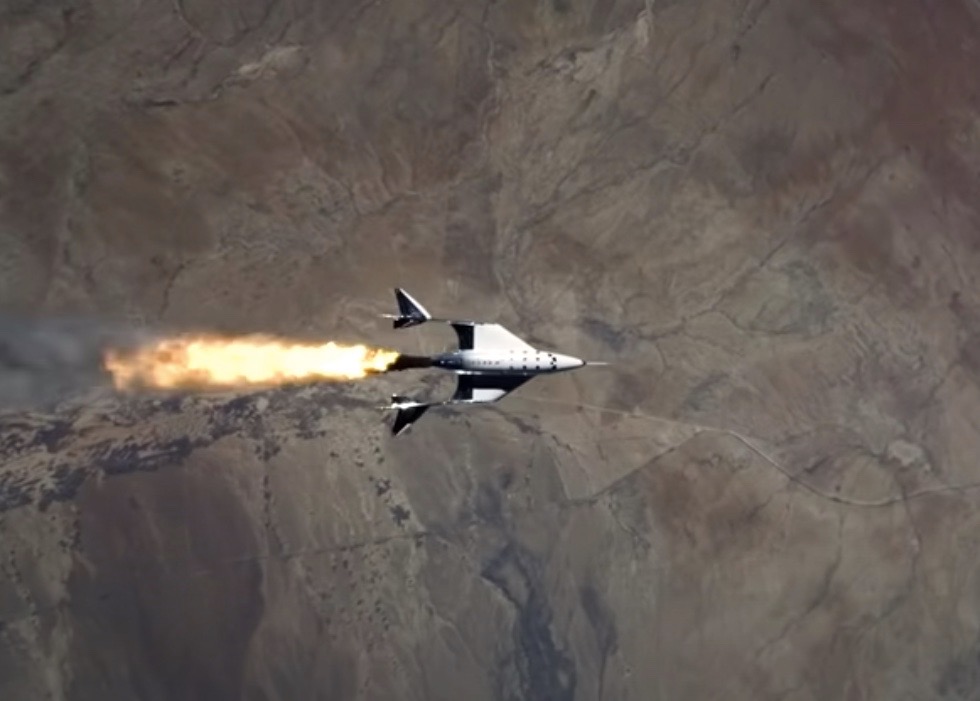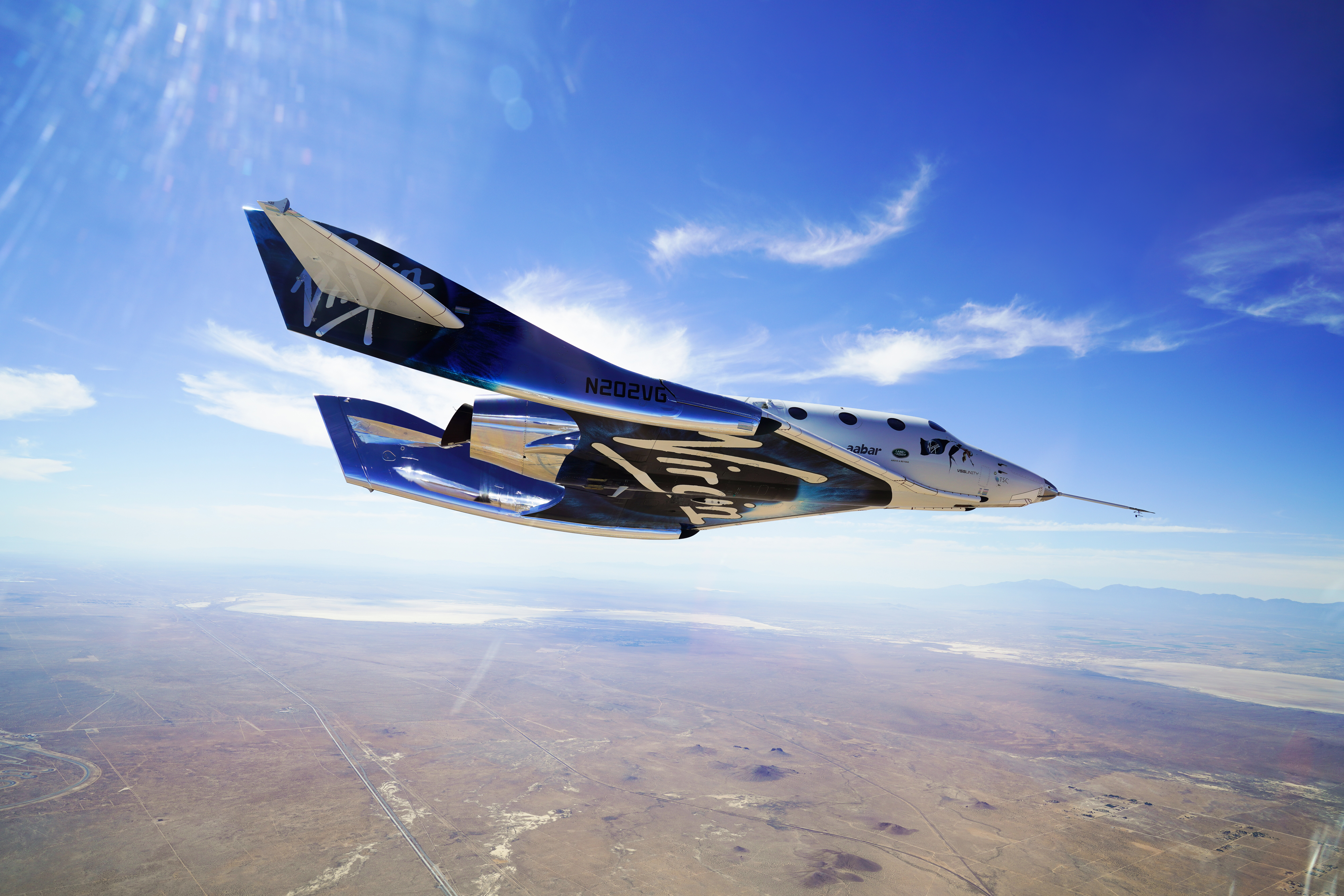
Richard Branson's path to space has been quite a bit longer and more circuitous than he anticipated.
The billionaire founder of the Virgin Group is set to ride Sunday (July 11) on the fourth crewed spaceflight of Virgin Galactic's SpaceShipTwo suborbital vehicle, which the company aims to have fully up and running early next year.
Branson's participation will fulfill an oft-stated promise to be one of the first passengers that Virgin Galactic launches to the final frontier — a bucket-list box that was supposed to be ticked years ago.
Related: How to watch Virgin Galactic launch Richard Branson to space
More: How Virgin Galactic's SpaceShipTwo works (infographic)
Branson founded Virgin Galactic in 2004 to build on the success of SpaceShipOne, a reusable three-person suborbital space plane built by the company Scaled Composites and financed by Paul Allen to win the $10 million Ansari X Prize for private spaceflight. Two years later, he told CNN that he expected the company to start carrying "ordinary people" to and from suborbital space in 2008. (Branson is far from ordinary by financial standards, but he's not a professional astronaut, so he fits the bill.)
The target date kept getting pushed back, however, as Virgin Galactic dealt with various issues, including two fatal accidents. The first tragedy was a test-stand explosion at California's Mojave Air and Space Port in July 2007, which killed three employees of Scaled Composites, the aerospace company that designed the two-pilot, six-passenger SpaceShipTwo.
The second occurred on Oct. 31, 2014, during a rocket-powered test flight of the first SpaceShipTwo vehicle, VSS Enterprise. (Branson will fly on the second, VSS Unity.) Enterprise broke apart in the skies above Mojave, killing co-pilot Michael Alsbury and seriously injuring pilot Peter Siebold.
Get the Space.com Newsletter
Breaking space news, the latest updates on rocket launches, skywatching events and more!
An investigation determined that Alsbury unlocked Enterprise's "feathering" re-entry system too early during the flight, leading to the winged vehicle's demise. VSS Unity features design changes that will prevent such premature feather deployment from happening again, Virgin Galactic representatives have said.
The rival of Blue Origin
Virgin Galactic's chief competitor in the suborbital space tourism business, Jeff Bezos' Blue Origin, also has a landmark flight coming up. Blue Origin is targeting July 20 for its first crewed mission — a suborbital jaunt that will send Bezos, his brother Mark, pioneering aviator Wally Funk and a still-mysterious auction winner aloft in the company's New Shepard vehicle. (Blue Origin has not yet revealed the identity of the auction winner, who paid $28 million for his or her seat.)
Blue Origin has not suffered any fatal accidents, but its march to crewed flight has still taken two decades; Bezos founded the spaceflight company in 2000.
This very brief history lesson serves to reinforce a point that Branson himself made just the other day. "Space is very difficult," he told National Public Radio's Leila Fadel, during an interview that aired Wednesday (July 7). "Rocket science is very difficult."
That's especially true with human spaceflight, a field in which the smallest mistake or oversight can have catastrophic consequences, both for the people aboard the spacecraft and the company operating it.
This simple but important truth — spaceflight is hard — may get lost in the tumult of commentary that's already piling up in advance of the Branson and Bezos flights. Some of the think pieces will run too hot, proclaiming the definitive dawn of a new commercial space age. Others will run too cold, labeling SpaceShipTwo and New Shepard mere toys compared with orbital craft such as SpaceX's Crew Dragon capsule, which has already carried astronauts to the International Space Station three separate times.
An exciting, but uncertain, future

But it's unclear what our current moment actually represents, and we won't actually know until a fair few smoke-clearing years have passed.
It's possible, for example, that the market for suborbital space tourism won't be large enough to support the activities of either SpaceShipTwo or New Shepard over the long haul. But it's also possible that their ticket prices will fall fast enough to keep the customers flooding in indefinitely, the future that both companies predict. (The most recently stated price for a seat aboard SpaceShipTwo was $250,000. Blue Origin has not yet revealed its standard ticket price, but it's expected to be in the low six figures as well.)
The flights of Branson and Bezos, in short, are a window into a future we can't yet see. You may have strong opinions about that future, about how the space tourism business, and commercial spaceflight more generally, will or should develop. And that's fine. But it's also fine to just sit by the window and wait, a cold drink in hand, happy that the drapes are being pulled after all these years.
Mike Wall is the author of "Out There" (Grand Central Publishing, 2018; illustrated by Karl Tate), a book about the search for alien life. Follow him on Twitter @michaeldwall. Follow us on Twitter @Spacedotcom or Facebook.
Join our Space Forums to keep talking space on the latest missions, night sky and more! And if you have a news tip, correction or comment, let us know at: community@space.com.

Michael Wall is a Senior Space Writer with Space.com and joined the team in 2010. He primarily covers exoplanets, spaceflight and military space, but has been known to dabble in the space art beat. His book about the search for alien life, "Out There," was published on Nov. 13, 2018. Before becoming a science writer, Michael worked as a herpetologist and wildlife biologist. He has a Ph.D. in evolutionary biology from the University of Sydney, Australia, a bachelor's degree from the University of Arizona, and a graduate certificate in science writing from the University of California, Santa Cruz. To find out what his latest project is, you can follow Michael on Twitter.









